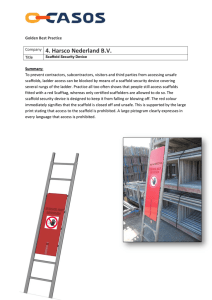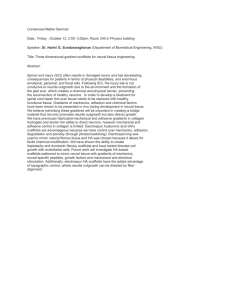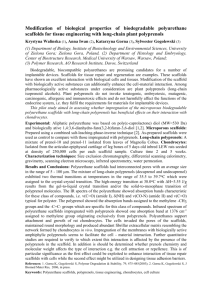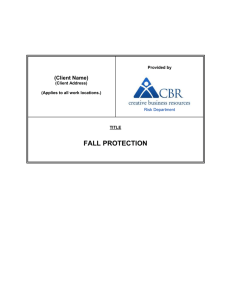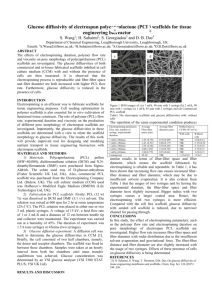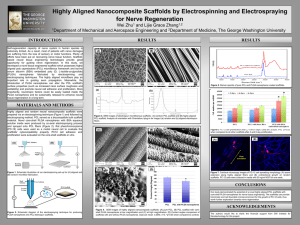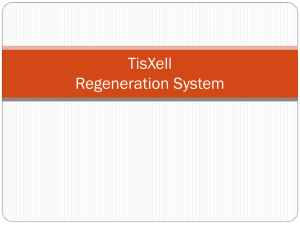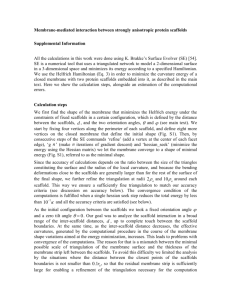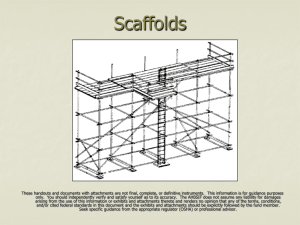Tissue Engineering Scaffolds
advertisement
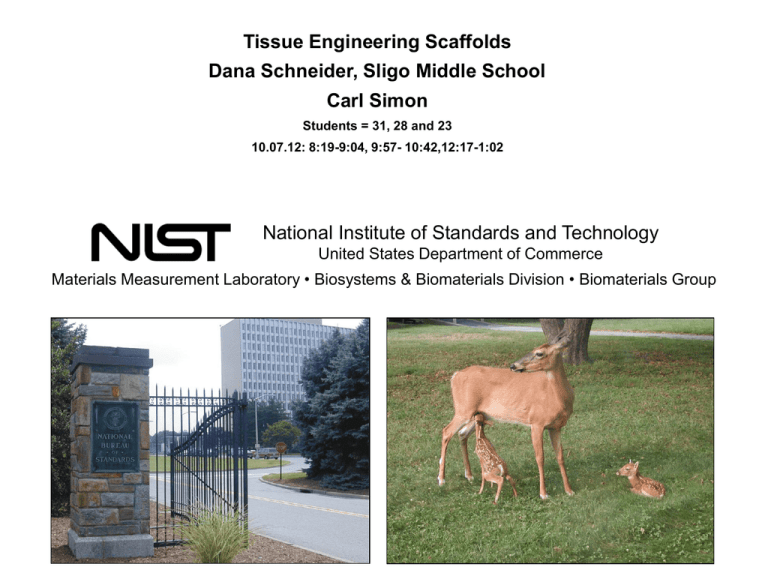
Tissue Engineering Scaffolds Dana Schneider, Sligo Middle School Carl Simon Students = 31, 28 and 23 10.07.12: 8:19-9:04, 9:57- 10:42,12:17-1:02 National Institute of Standards and Technology United States Department of Commerce Materials Measurement Laboratory • Biosystems & Biomaterials Division • Biomaterials Group NIST • Mission: to promote U.S. innovation and industrial competitiveness by advancing measurement science, standards, and technology in ways that enhance economic security and improve our quality of life • Established by congress in 1901 as the nation’s measurement lab • 5000 staff, 3000 PhDs, 4 Nobel Laureates since 1997, MacArthur Fellowship winner in 2003, National Medal of Science winners in 1998 & 2008, 8 current National Academy members What Does NIST Do? International System of Units (SI) Base quantity Name Symbol length meter m mass kilogram kg time second s electric current ampere A temperature kelvin K amount of substance mole mol luminous intensity candela cd About 2.6 billion times a day, or 30,000 times a second, NIST’s Internet Time Service sets computer clocks and other timekeeping devices Instructions for a 16th-century measuring rod: “Take 16 men, short and tall ones as they leave church and let each of them put one shoe after the other and the length thus obtained shall be a just and common measuring rod to survey the land with.” NIST 4 Nobel Prizes in Physics in 15 Years 2012 Nobel Prize in Physics to Dave Wineland of NIST Time and Frequency Division Dave Wineland, Leader of the Ion Storage Group, shares the 2012 Nobel Prize in Physics with Serge Haroche of France "for ground-breaking experimental methods that enable measuring and manipulation of individual quantum systems." Tissue Engineering Donor Cells from Injured Knee Scaffold Isolated Cells Grow New Knee Tissue in the Lab Repair Damaged Knee Nanofiber Scaffolds for Human Trachea Trachea Paolo Macchiarini Careggi, Italy 0.05 mm Nanofiber scaffold seeded stem cells Nanofiber trachea Polymers A polymer is a chemical compound consisting of repeating structural units Atomic force micrograph of single polymer chain Dry polymer powder Polymers Polystyrene Polyethylene Poly(e-Caprolactone) (PCL) Salt-Leached Scaffold Fabrication Mold NaCl Polymer Solution Fabrication: • Fill a mold with NaCl • Pour polymer solution over NaCl: NaCl is insoluble in solvent • Air dry to remove solvent • Leach NaCl porogen in water • Yields highly porous, scaffold matrix to support cell adhesion & tissue regeneration Salt-Leached PCL Scaffolds (96-Well Plate) 2 mm 100 mm 250 mm 25 mm Mouse Osteoblasts Cultured on PCL Salt-Leached Scaffolds 7d 14 d Each green dot is a cell nuclei stained with a fluorescent dye 25000 cells 10000 cells 5000 cells 1d 1 mm Freeform Fabrication Dana Schneider, Summer 2012 Stem Cells Cultured on Freeform Fabricated PCL Scaffolds 2 mm 5 mm Human Bone Marrow Stromal Cells (7d) Cell nuclei are green Cell bodies are red (actin) 0.2 mm 0.1 mm Stem Cells in PCL Nanofiber Scaffolds 20 mm 20 mm Red = Cells (Actin) Green = Nanofibers De-Cellularization (Lung) Native rat lung De-cellularized rat lung Detergent treatment to extract cells & antigens Re-seeded with cells Seed w/neonatal rat lung epithelium and rat lung microvascular endothelium; 1 wk culture in bioreactor The 3D structure of natural ECM directs the cells, “they just know where to go, and what to do” Implanted in syngeneic rat Lasts several hours in rat and exchanges gas Summary • Stem cells and scaffolds are the 2 components for tissue engineering • Scaffolds can by synthetic polymers or natural decellularized tissue • Polymers can be processed into scaffolds with widely varied structure • Salt-leached scaffolds • Freeform fabricated scaffolds • Nanofiber scaffolds • Many tissues are being engineered using many strategies • Trachea (synthetic) • Lung (natural) • Bladder (natural + synthetic) Salt-Leached Scaffold (24-Well Plate) 24-Well Plate with Scaffolds 3 mm 0.25 mm 50 mm Tissue-Engineered Bladder (De-Cellularization) Anthony Atala (Wake Forest) Tissue Engineered Bladder: 7 implants functioning up to 4 years later • Scaffold made from decellularized tissue from human cadaver and degradable polymer fibers to strengthen • Take bladder biopsy from patient (1-2 cm2) and isolate urothelial cells and bladder muscle cells • Seed scaffolds with cells from patients own bladder from biopsy: muscle on outside, urothelials on inside What Does NIST Do? • In the 1920s, purple, orange, green, blue, yellow, and red traffic lights carried different meanings in different states. In some states, green meant “go” and in others it meant “stop.” In 1927, NIST worked with two other agencies to establish a national code for the color of traffic lights that we still use today. • In 1904, a terrible fire raged in Baltimore. Firefighters arrived on special trains from Washington, D.C., and other places as far away as New York City. But most of the crews were helpless to put out the fire since their hoses would not fit on Baltimore hydrants. More than 1,500 buildings covering more than 70 city blocks burned to the ground. NIST found there were more than 600 different fire hose sizes and hydrant connectors in use in the U.S. In 1905, NIST helped pick a national fire hose standard that was eventually adopted throughout the country. Electrospinning Nanofibers Nanofiber Diameter = 900 nm 0.05 mm
